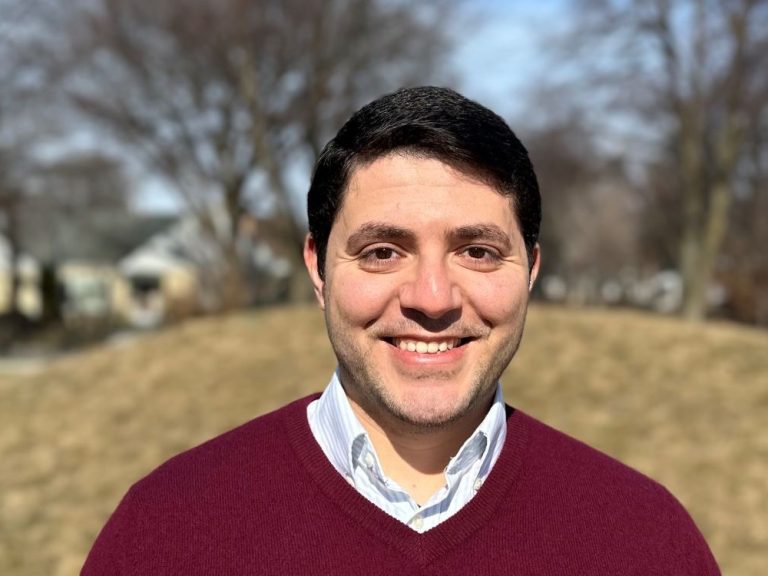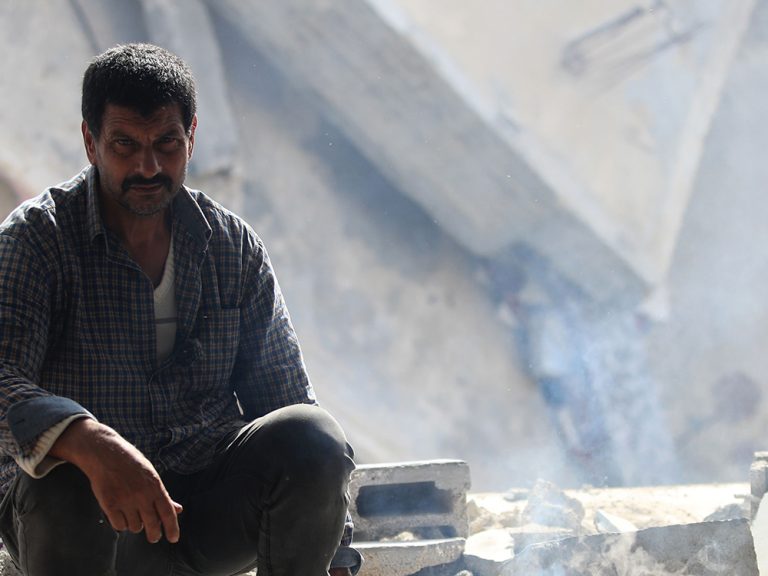Currently in Gaza, over 1.9 million people are displaced. That’s 85% of the population. The situation is dire, with severe overcrowding and disease spreading. Access to food, water and healthcare is very difficult. We are responding in Gaza, working with our new partner MAP. This is not ShelterBox’s first response in Gaza. We previously responded in 2004, 2008 and 2015.
In 2015, one of the families we supported was Mohammed Eid’s, known as Moh. He spent time living in a ShelterBox tent after his family were forced to flee their home due to airstrikes. Here he shares his experiences.
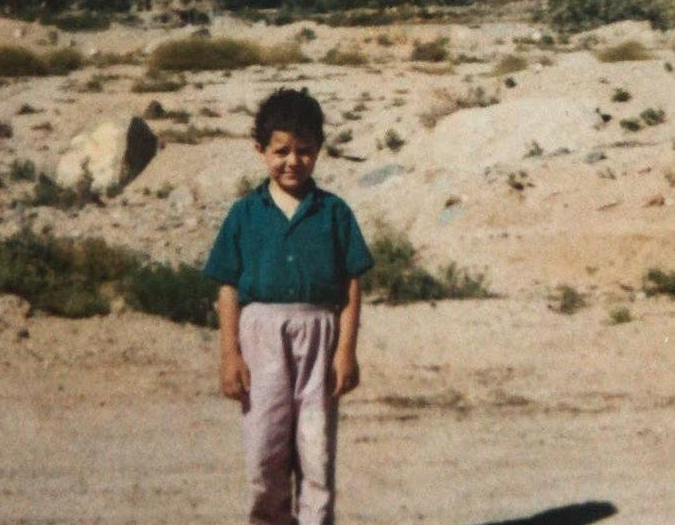

“We loved it so much”
Moh was born in Saudia Arabia, but his father dreamt of returning to Gaza where he grew up to build the family a home. At the age of 6, Moh and his family moved to Rafah in Gaza, into the home his father built. He remembers it fondly.
“It was small and cozy, with only two bedrooms, but we loved it so much. We had a living room where we spent time together every evening. We would gather, drink tea, and eat fruit, as is the tradition in Mediterranean cultures. Sometimes, my mom would bake us a cake, which I loved to dunk in sweet tea – though my mom never liked that, she let me enjoy it.”
In 2000, the peace process fell apart and the area around Moh’s home became a war zone. Each night tanks and bulldozers would come and some houses were pulled down. When a military operation took place in 2004, the family experienced a time of great fear.
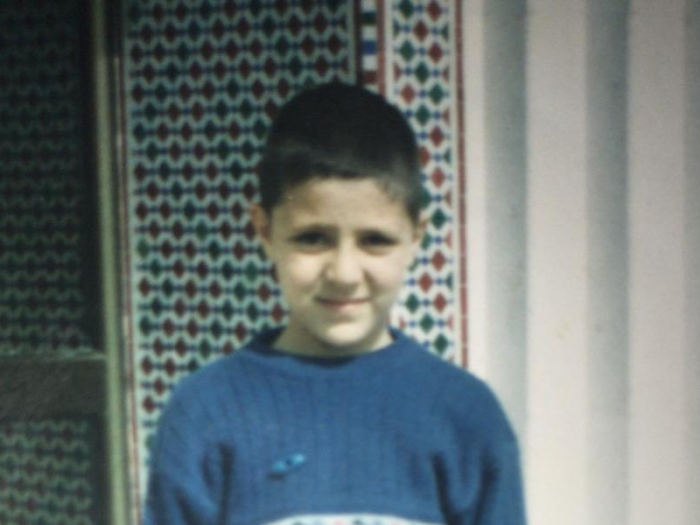

“We spent the night separated, and the next morning, we were rounded up, searched, and after long hours of fearing for our lives, allowed to leave and seek shelter away from the area. The operation lasted for two horrifying weeks. We stayed in one of the local schools that was turned into a refugee shelter. It was so crowded that we ended up staying in a tent outside, exposed to the open air. Gaza lacked any sort of accommodation infrastructure or temporary housing facilities, so when a crisis of such scale took place, the streets became shelters…”
“For months after the operation, we moved from one shelter to another. For several years following that, we were renting different places and moving around a lot. It was a very difficult experience, losing everything we ever owned and everything we built.”
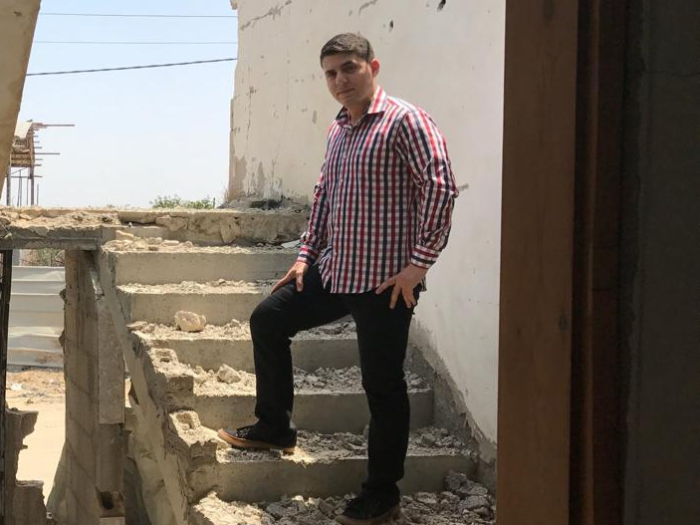

“It all started again”
Moh and his family received assistance to build a new home. They were able to move into it four years after being forced from their old house.
“We were grateful for it, but it didn’t feel as good as the first one. I guess the pain of loss overshadowed everything. However, in our new house, we felt safer and back together.”
For their new home, the family chose a location away from Gaza’s borders. However, the conflict in Gaza evolved into aerial bombardment. Once again they found themselves in danger.
“In 2014, during one of the many rounds of conflict, our neighbourhood was heavily bombarded. The intensity of the airstrikes forced us to leave our home back then, and we never returned to it.”
“It all started again; we lost everything and sought refuge in the local school turned into a shelter.”
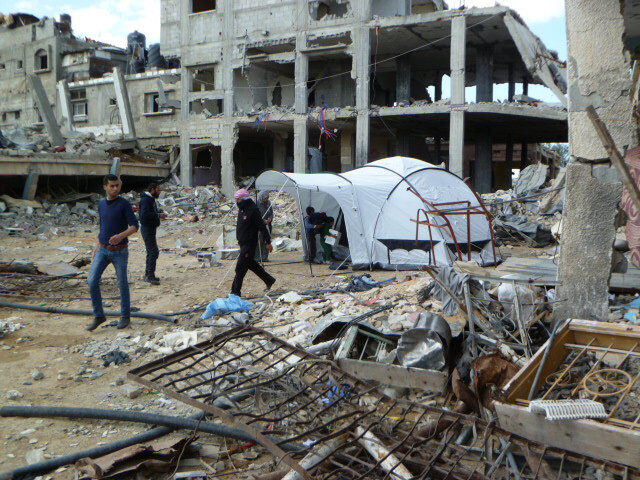

“We found peace in family, food and tradition”
It was after losing their home for a second time that Moh’s family received a tent from ShelterBox.
“I wondered how far that tent must have travelled before reaching us. We were grateful for that tent.”
Moh remembers the importance of having the ShelterBox tent as shelter. “A tent provides privacy for the family, and privacy is culturally important in the Middle East. The worst thing that can happen to people is to deprive them of that. That’s exactly what destroying a house does; people lose dignity before they even lose their lives, and that’s the worst form of punishment.”
His family worked hard to have their tent feel like home. “My mom would boil us some tea and make a type of baked bread called Mankosha… The aroma of the freshly baked Mankosha mingling with the fragrance of thyme would envelop the tent, creating a sense of warmth and safety. In those moments, despite the uncertainty and hardships, we found peace in family, food, and tradition.”
Living in a tent was challenging at times, but Moh was grateful that the family had the tent when they needed it.
“I’m thankful for every time we had temporary shelter or a tent, even though it’s far from ideal and living in one can be incredibly difficult… Tents became a precious commodity. Thankfully, we had a tent when we needed it most, immediately after losing our house. It offered almost everything we needed within the first 24 hours following displacement. Along with the tent came mattresses, blankets, a first aid kit, and a food package. Honestly, all we needed immediately was a place to sleep.”
Later the family were able to move out of the tent into rented accommodation, although it was not an easy transition. “We would move in and out all the time. Sometimes we would live in tents for several days, weeks, or months. But once we got on the rent allowance scheme, we would be able to leave the tent. When you think about an emergency or crisis, it’s absolutely synonymous with chaos. There is no smooth transition from homelessness to tent housing and then to permanent housing. Things are just all over the place; people are constantly moving between temporary housing and tents. It’s just the nature of the situation.”
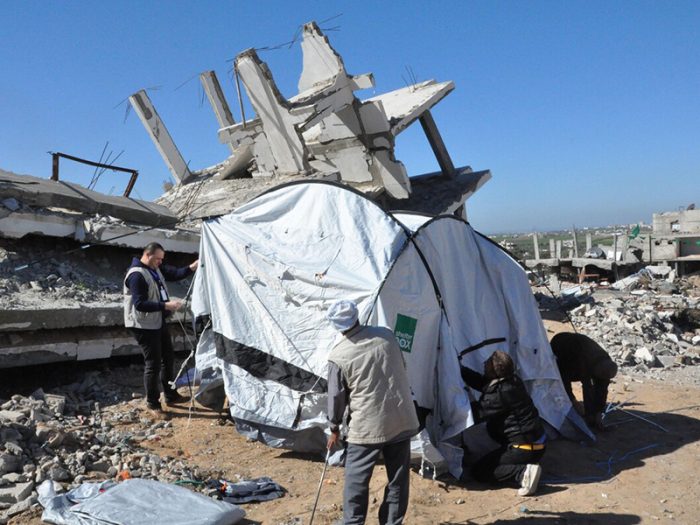

Living in a tent was challenging at times, but Moh was grateful that the family had the tent when they needed it.
“I’m thankful for every time we had temporary shelter or a tent, even though it’s far from ideal and living in one can be incredibly difficult… Tents became a precious commodity. Thankfully, we had a tent when we needed it most, immediately after losing our house. It offered almost everything we needed within the first 24 hours following displacement. Along with the tent came mattresses, blankets, a first aid kit, and a food package. Honestly, all we needed immediately was a place to sleep.”
Later the family were able to move out of the tent into rented accommodation, although it was not an easy transition. “We would move in and out all the time. Sometimes we would live in tents for several days, weeks, or months. But once we got on the rent allowance scheme, we would be able to leave the tent. When you think about an emergency or crisis, it’s absolutely synonymous with chaos. There is no smooth transition from homelessness to tent housing and then to permanent housing. Things are just all over the place; people are constantly moving between temporary housing and tents. It’s just the nature of the situation.”
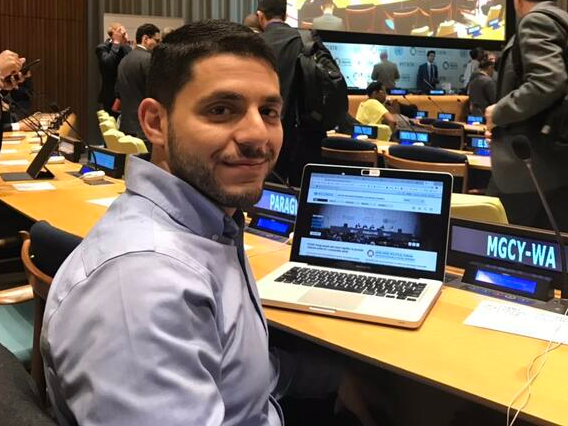

“The events reminded me of the generational trauma of losing everything we once owned”
Moh currently lives in the USA, where he travelled in 2017 after being awarded the Rotary Peace Fellowship. He currently works for Rotary International, as a program officer supporting the peace centers program and peace fellows. He has been following the recent events in Gaza in horror.
“The recent events in Palestine were deeply shocking to me, as they were to everyone else. The events reminded me of the generational trauma of losing everything we once owned. The loss of a human life is never and should never be a normal thing to hear.”
Moh’s family, still in Gaza, have had their house destroyed in an airstrike. “My family’s house back in Gaza was bombed on the third day of the war. The airstrike caused partial destruction, and my brother was injured. With the help of neighbours and some volunteers, my family managed to leave the half-collapsed house. My brother was hospitalised and thankfully survived after receiving medical care. Now, my family are temporarily staying with relatives in Rafah Camp, where hundreds of thousands of internally displaced people are seeking refuge as well.”
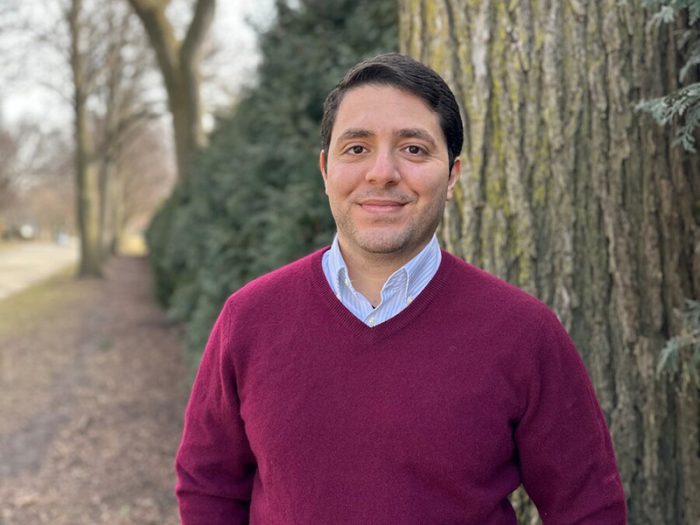

When possible, Moh has stayed in communication with his family. Through them he has learnt of the terrible situation faced by people in Gaza. “The nightmare of displacement and homelessness is haunting everyone there. The worst part about it now is that there are no relief organisations with a proper response to the scale of the crisis, and there are no temporary tents. Losing a house means literally sleeping on the street… I never thought that one day I will think back and realise that during the time when I had a tent to sleep in, I was extremely privileged and lucky, and that a day would come when a tent would be so valuable and rare… While a tent may seem like a simple item to some, it holds immense significance for a family in desperate need of shelter.”
Moh does not know what will happen to his family next but hopes that they and other people in Gaza will receive support and shelter. “I do know that no one should be deprived of their most basic human need. People need shelters during emergencies.”

